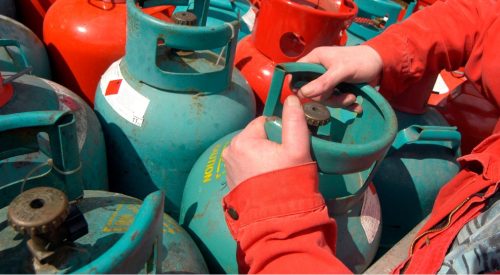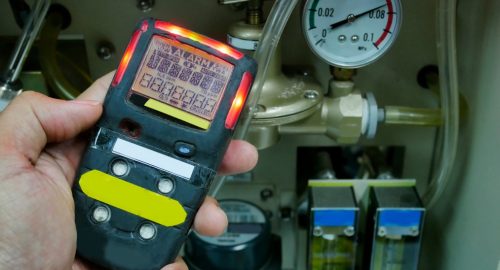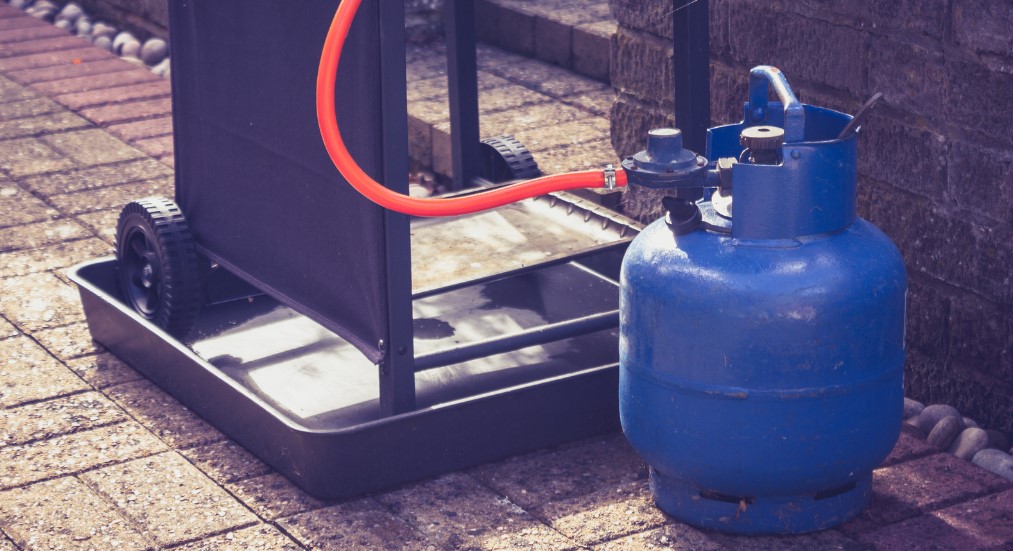Table of Contents
Welcome to our comprehensive guide on Gas Safety Certificates in the United Kingdom. If you are a landlord or tenant, understanding the importance of these certificates is crucial for ensuring the safety of your property and its residents. In this guide, we will cover everything you need to know about Gas Safety Certificates and the legal requirements set out for landlords and tenants in the UK.
Gas Safety Certificates, also known as CP12 certificates, are official documents that verify the safety of gas appliances and installations in a property. These certificates can only be issued by qualified Gas Safe registered engineers after conducting a thorough gas safety inspection or check. They play a vital role in protecting tendants from potential harm caused by faulty gas appliances or installations.
Landlords in the UK are legally required to obtain Gas Safety Certificates for each rental property they own. These certificates must be renewed annually by a Gas Safe registered engineer and cover all gas appliances and installations in the property. Failing to comply with these legal requirements not only exposes landlords to severe penalties but also puts tenants’ lives at risk.
Gas Safety Certificates are not only a legal requirement but also demonstrate a landlord’s commitment to the safety and well-being of their tenants. By obtaining and renewing these certificates, landlords can provide their residents with peace of mind and create a secure living environment.
Gas Safety Certificates are valid for one year from the date of issue. It is the landlord’s responsibility to ensure that a new certificate is obtained and provided to tenants before the expiration of the current one. Regular renewal of these certificates is vital to maintaining gas safety standards and protecting residents.
The cost of obtaining a Gas Safety Certificate varies depending on factors such as the number of gas appliances and the property’s location. It is recommended to contact multiple Gas Safe registered engineers to obtain competitive quotes without compromising on quality and safety.
Gas safety inspections or checks are thorough examinations of all gas appliances and installations to ensure their safe operation. These inspections must be carried out by qualified Gas Safe registered engineers who assess and test appliances, inspect gas pipework, and check ventilation systems to identify any potential hazards or issues.
In conclusion, Gas Safety Certificates are essential for ensuring the safety and well-being of tenants in the UK. By understanding the importance of gas safety and working with qualified professionals, landlords can fulfill their legal obligations and provide a secure living environment for their residents.
What is a Gas Safety Certificate?

A Gas Safety Certificate, also known as a CP12 certificate, is an official document that verifies the safety of gas appliances and installations in a property. It can only be issued by a qualified Gas Safe registered engineer after conducting a thorough gas safety inspection or check.
Legal Requirements for Gas Safety Certificates
As a landlord in the UK, it is essential to understand and comply with the legal requirements for Gas Safety Certificates. These certificates serve as crucial documentation to ensure the safety of your rental property’s gas appliances and installations. Failure to adhere to these regulations can have severe consequences, ranging from penalties to potential harm to your tenants.
To meet the gas safety regulations, landlords must obtain a Gas Safety Certificate for each rental property they own. These certificates must be renewed annually by a qualified Gas Safe registered engineer.
Here’s a breakdown of the key legal requirements for Gas Safety Certificates:
- Obtain a Gas Safety Certificate: Landlords are responsible for arranging a thorough gas safety inspection or check. Only a Gas Safe registered engineer can conduct this assessment and issue a Gas Safety Certificate.
- Renewal of Certificates: Gas Safety Certificates are valid for one year from the date of issue. Landlords must ensure timely renewal of these certificates to maintain compliance with the regulations.
- Inclusive Coverage: Gas Safety Certificates must cover all gas appliances and installations in the rental property. This includes but is not limited to gas boilers, cookers, and other gas-operated devices.
Compliance with these legal requirements is not just a matter of paperwork; it is a fundamental aspect of ensuring the safety and well-being of your tenants. By prioritizing gas safety, you not only protect your tenants from potential hazards but also uphold your responsibilities as a landlord.
|
Legal Requirements |
Description |
|
Gas Safety Certificate |
Landlords must obtain a Gas Safety Certificate for each rental property. |
|
Annual Renewal |
Certificates must be renewed annually by a qualified Gas Safe registered engineer. |
|
Inclusive Coverage |
Certificates must cover all gas appliances and installations in the property. |
Importance of Gas Safety Certificates for Landlords
Gas Safety Certificates are crucial for landlords as they prioritize the safety of their tenants and protect them from potential harm caused by faulty gas appliances or installations.
Obtaining a valid Gas Safety Certificate demonstrates compliance with legal requirements and showcases the landlord’s commitment to maintaining a safe living environment. It’s not just a legal obligation but also a responsibility towards the well-being of the tenants.

By ensuring that gas appliances and installations are regularly inspected and certified, landlords can minimize the risk of gas-related accidents, such as leaks or carbon monoxide poisoning, which can have disastrous consequences.
Moreover, having a valid Gas Safety Certificate enhances the reputation and trustworthiness of the landlord. The certificate provides assurance to potential tenants that their well-being is a priority and that their safety is not compromised.
In addition, some insurance providers may require landlords to have a valid Gas Safety Certificate as a condition for coverage. It’s important to check with the insurance company to confirm their specific requirements and ensure compliance.
Overall, Gas Safety Certificates are a vital aspect of being a responsible and conscientious landlord. They are not just legal documents but a testament to the landlord’s commitment to gas safety and the well-being of their tenants.
|
Benefits of Gas Safety Certificates for Landlords |
|
Provides a safe living environment for tenants |
|
Demonstrates compliance with legal requirements |
|
Enhances reputation and trustworthiness |
|
Meets insurance requirements |
Gas Safety Certificate Validity Period and Renewal
Gas Safety Certificates have a validity period of one year from the date of issue. It is crucial for landlords to be aware of this expiration and ensure timely renewal to maintain gas safety standards and protect the well-being of residents. Failing to obtain a new certificate and provide it to tenants before the current one expires can result in non-compliance with legal requirements and potential risks.
Regular renewal of Gas Safety Certificates is not only a legal obligation but also a responsible action to prioritize the safety of occupants. By staying up-to-date with certificate renewals, landlords can demonstrate their commitment to maintaining gas safety and provide a secure living environment for their tenants.
Cost of Gas Safety Certificates
Obtaining a Gas Safety Certificate involves certain costs that can vary depending on several factors. The main factors that influence the cost of a Gas Safety Certificate include the number of gas appliances present on the property and its location. To ensure accuracy and compliance with regulations, it is recommended to contact multiple Gas Safe registered engineers to obtain competitive quotes.
By comparing quotes from different engineers, landlords can make informed decisions and find the most suitable option that meets both their budget and safety requirements. It’s important to remember that while cost is a significant consideration, prioritizing quality and safety should always be the top priority.
Summary of Factors Affecting Gas Safety Certificate Costs:
- The number of gas appliances in the property
- The location of the property
- The specific rates and fees charged by different Gas Safe registered engineers
|
Factors |
Cost Implications |
|
The number of gas appliances in the property |
The more gas appliances, the higher the overall cost of the Gas Safety Certificate. Each appliance needs to be inspected and tested individually to ensure compliance with safety standards. |
|
The location of the property |
The cost of Gas Safety Certificates can vary depending on the region or city where the property is located. Factors such as transportation costs, local labor rates, and market dynamics can influence the overall cost. |
|
The specific rates and fees charged by different Gas Safe registered engineers |
Gas Safe registered engineers are independent professionals who set their own rates and fees. It’s important to compare quotes from multiple engineers to find the best balance between cost and quality. |
Gas Safety Checks and Inspections
Ensuring the safe operation of gas appliances and installations is a top priority for landlords and property owners. Gas safety inspections or checks, conducted by qualified Gas Safe registered engineers, play a crucial role in maintaining the safety and well-being of occupants.
During a gas safety inspection or check, the engineer conducts a thorough examination of all gas appliances and installations. This includes assessing and testing the appliances, inspecting the gas pipework, and checking ventilation systems. The aim is to identify any potential hazards or issues that may compromise the safety of the property.

With their expertise and knowledge, Gas Safe registered engineers are able to detect any gas leaks, faulty appliances, or inadequate ventilation systems that could pose a risk to occupants’ health and safety. By conducting regular gas safety inspections or checks, landlords can ensure compliance with legal requirements and provide a secure living environment for their tenants.
Advantages of Gas Safety Inspections and Checks:
- Preventing potential gas-related hazards and accidents
- Detecting gas leaks and faulty appliances
- Identifying inadequate ventilation systems
- Ensuring compliance with gas safety regulations
- Protecting the health and safety of occupants
Statistics on Gas Safety:
|
Year |
Number of Gas Safety Inspections Conducted in the UK |
Number of Gas-Related Incidents Recorded |
|
2018 |
380,000 |
5,612 |
|
2019 |
415,000 |
6,112 |
|
2020 |
394,000 |
5,913 |
|
2021 (until September) |
285,000 |
4,227 |
These statistics clearly highlight the importance of regular gas safety inspections or checks in preventing gas-related incidents and ensuring the well-being of occupants. By staying proactive and prioritizing gas safety, landlords can minimize the risks associated with gas appliances and installations in their properties.
Conclusion
Gas Safety Certificates are an essential requirement for landlords in the UK to ensure the safety and well-being of their tenants. By obtaining and renewing these certificates annually, landlords demonstrate their compliance with legal obligations and protect residents from potential hazards related to gas appliances and installations.
Understanding the importance of gas safety is crucial for landlords. By working with qualified professionals, they can ensure that gas safety inspections and checks are carried out thoroughly. This includes assessing and testing appliances, inspecting gas pipework, and checking ventilation systems, identifying and addressing any potential issues.
By prioritising gas safety and maintaining valid Gas Safety Certificates, landlords can create a secure living environment for their tenants. Taking proactive measures to safeguard against gas-related risks is not only a legal obligation but also a responsible choice that instills trust and confidence in the minds of residents.
FAQ

Why are Gas Safety Certificates important for landlords?
Gas Safety Certificates are of utmost importance for landlords as they ensure the safety of their tenants and protect them from potential harm caused by faulty gas appliances or installations. Additionally, having a valid Gas Safety Certificate demonstrates compliance with legal requirements and enhances the reputation and trustworthiness of the landlord.
How long is a Gas Safety Certificate valid for? How often should it be renewed?
Gas Safety Certificates are valid for one year from the date of issue. Landlords must ensure that a new certificate is obtained and provided to tenants before the expiration of the current one. Regular renewal of these certificates is essential to maintaining gas safety standards and protecting the well-being of residents.
How much does a Gas Safety Certificate cost?
The cost of obtaining a Gas Safety Certificate varies depending on factors like the number of gas appliances and the location of the property. It is recommended to contact multiple Gas Safe registered engineers to obtain competitive quotes and ensure compliance with regulations without compromising on quality and safety.
What are gas safety checks and inspections?
Gas safety inspections or checks are thorough examinations of all gas appliances and installations to ensure their safe operation. These inspections must be carried out by qualified Gas Safe registered engineers who will assess and test appliances, inspect gas pipework, and check ventilation systems to identify any potential hazards or issues.

